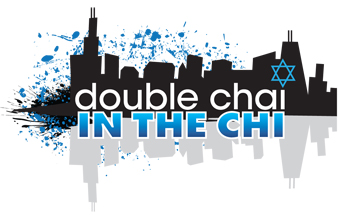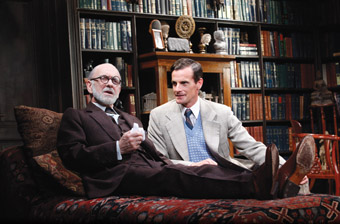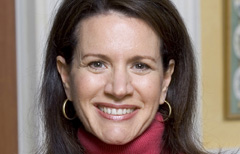.jpg)
What do you get when you place 500 young Jewish leaders together for a five day intensive seminar at a hotel tucked away in the historic hills of Jerusalem?
While my mother would have loved the answer to this question be me leaving with a pretty Jewish girlfriend, in actuality I departed Masa Israel's 2012 Building Future Leadership (BFL) seminar with a vision, plan, and the tools essential for transforming a seemingly unreachable objective of positively altering Israel's ecological landscape into a tangible reality. MASA, which means "journey" in Hebrew, offers participants scholarships that enable thousands of Jewish youth to spend a semester or year in Israel in any of the more than 150 programs.
.jpg)
This story begins long before and far away from my participation in the 2012 Building Future Leadership (BFL) seminar. In May of 2011 I graduated from the University of Illinois; by August, my bags were packed for I was leaving behind my family and friends in Vernon Hills in order to embark on a 10-month journey as an Israel Government Fellow. I have been a resident of Jerusalem and a Fellow positioned in the Israeli Ministry of Finance for the last seven months. From stashing my ties in the far back corner of my closet, to calling tomato, cucumber, and cheese on toast breakfast, I have very much assimilated into life as an Israeli and Jerusalemite.
Over our time in Israel, my friends and fellow Israel Government Fellows Dan, Joel, and Sam have joined me in experiencing all that Israel has to offer. We have spent countless hours running the streets of Jerusalem in preparation for the Tel Aviv Marathon; we have hiked from the Negev to the Galil; we have spent a dozen Shabbats practicing our matkot (paddle ball) skills on the beaches of the Mediterranean Sea.
In each of these experiences, one consistent component of the land stood out to us-trash. It truly shocks us the way in which the land of Israel is being treated. In each of our communities from around the world, every Jew sits down with their family and on Passover reads from their Haggadah, "Next year in Jerusalem!" This simple wish expresses the deep tie between Eretz Yisrael and the Jewish people that has remained a consistent binding force for over two millennia. As four young Jews who have long envisioned Israel as the oasis of natural beauty in the Middle East-the place where the desert blooms-we kept asking ourselves how we, as a people, can sacrifice, and struggle so much for the land of milk and honey just so we can distort and scar its beauty?
With that question in the back of our minds, Dan, Joel, Sam and I boarded a bus for the BFL seminar. The aim of BFL is to equip the Jewish leaders of tomorrow with the tools to cultivate positive change in their communities as well as coach them on how to be a strong advocate for Israel once they return to their respective countries. The BFL's educational components were broken down into tracks focusing on entrepreneurship, coaching, and networking. The workshops were given an injection of energy and know-how with many of the sections being led by the social entrepreneurship experts at PresenTense. To put it simply, the intensive five-day seminar is an incubator for ideas and visions. It is here, surrounded by insightful instructors and energetic future leaders that social initiatives relating to the Jewish experience gain the ability to emerge from a fictitious existence, take root, and become tangible vehicles for change.
Led by Ariel Beery, co-director of PresenTense, the "meat and potatoes" of the BFL seminar began with an idea slam. Reflecting renowned philosopher George Berkley famous query, "If a tree falls in the forest and no one is around to hear it, does it make a sound?" does an idea exist if it isn't written down on paper, out there for everyone to see?
During the idea slam, Joel was able to capture what all of us had been feeling for so many months when he wrote down on a sticky note his "problem" that he would like to see tackled: the excessive garbage scattered throughout Israel. Flowing from that simple but profound thought, Dan, a Sidney, Australia resident, spoke of Australia's national cleanup day. More than just picking up trash, Dan articulated a national, unifying day where Australians from all walks of life hit the streets, trails, and beaches to beautify their country. It took only a few minutes for the concept of marrying Joel's problem and Dan's solution to marinate in our minds and hearts. Then and there, the four of us decided to use our remaining time at the BFL seminar and in Israel to bring an Israeli national clean-up day into existence.
Realizing the instruction, tools, and platform the BFL seminar offered was the perfect place to construct and launch our initiative, we wasted no time and immediately began developing our concept. Immersed within the networking track-a program focused on concept development and harnessing social media to raise awareness and encourage community involvement-we used our PresenTense instructor's insight and experience on how to take an idea, establish a clear vision, and develop a "future history" or plan for success in order to breathe life into an eco-initiative to benefit Israel. Fueled by a "conquer the world" attitude inspired by the speakers and fellow participants at BFL, we turned a concept espoused at the idea slam into a full blown eco-initiative in just 36 short hours.
By the end of the fourth day of the BFL seminar, we had established a clear vision and goals, developed a plan for leveraging the power and influence of the 10,000 strong Masa participants positioned across Israel, and created a digital campaign that includes a website (www.cleantheland.org) and Facebook page dedicated to the cause. Upon receiving strong support from Masa's top staff at the seminar, we were given approval to formally launch our initiative by addressing all 500 participants of the BFL seminar. Standing up on stage, we illustrated our vision and made it clear that, as a united group of young Jewish leaders, we have the power to take the first step towards instilling a "leave no trace" attitude in the Land of Israel.
The author of the description webpage for the Building Future Leadership seminar misleadingly states that the BFL is only a five-day seminar. My friends and I, along with the hundreds of young Jewish leaders who joined us, are using the creative and insightful means we developed at the seminar to institute change each and every day. In many ways, as each of the 500 BFL seminar participants continue to by the catalyst for positive change in their communities, the seminar will continue to function and never actually end. On May 18, we will be facilitating the inaugural Clean the Land Day where Masa's eager and motivated participants will promote a "lead by example" attitude and take a significant step in creating long lasting change for Israel, one unsightly piece of trash at a time. Every park, sidewalk, and beach restored, as well as every visitor and Israeli who develops a more eco-conscious mindset, will owe their newfound reality to the thousands of passionate Masa participants and the kick in the butt the Building Future Leadership seminar gave to its many thankful attendees.
Masa Israel Journey gives 18-to-30-year-old Jews life-changing experiences in Israel, connecting them to programs that meet their interests, offering scholarships, providing expertise, and supporting them throughout the entire process.Masa Israel is a joint project of the Government of Israel and the Jewish Agency for Israel and is made possible by the generous contributions of the Jewish Federations of North America and Keren Hayesod-UIA. Visit MasaIsrael.org for more information.
Max Friedenberg is currently an Israel Government Fellow working in the Global Debt Capital Markets and Foreign Currency Transactions department of the Israeli Ministry of Finance. Friedenberg, originally from Vernon Hills, is an alumnus of the University of Illinois where he earned a dual degree in economics and political science.




.jpg)
.jpg)


.jpg)



